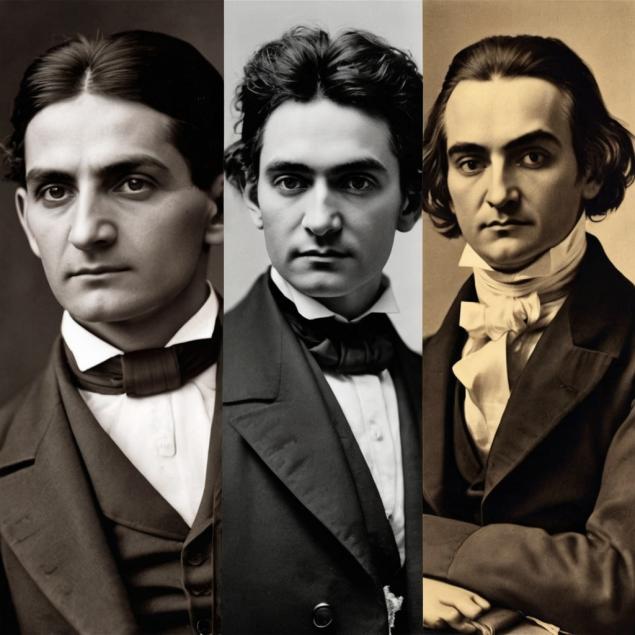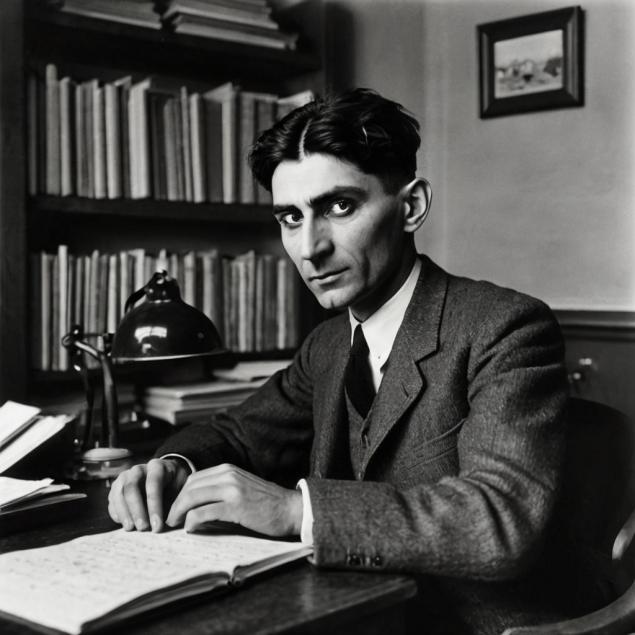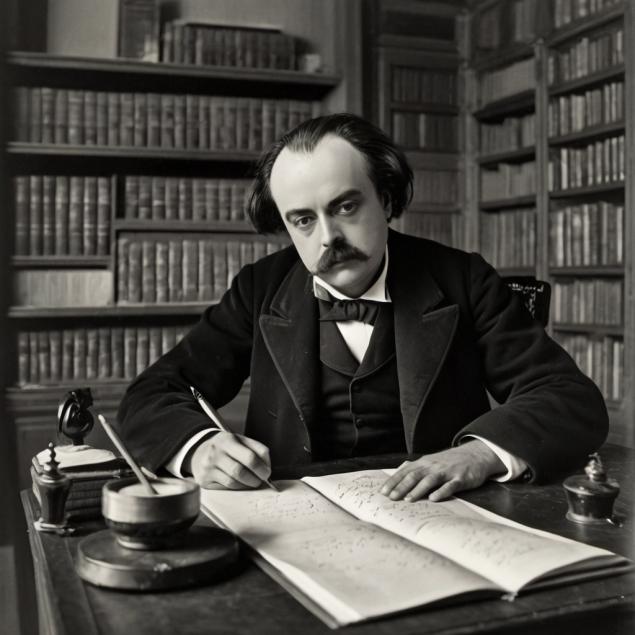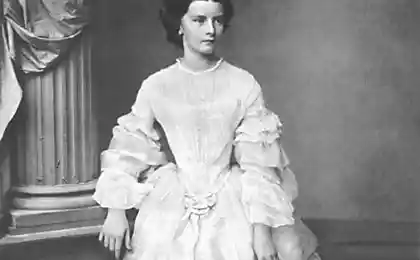378
The daily routine of great people: Franz Kafka, Ludwig van Beethoven, Gustave Flaubert

Introduction. Every great person has his own unique daily routine that helps him achieve outstanding results in his field. From writers to musicians, daily habits and rituals play a key role in shaping creativity and productivity. In this article, we look at how the daily routines of Franz Kafka, Ludwig van Beethoven and Gustave Flaubert contributed to their success and left an indelible mark on cultural history.

Franz Kafka: Attention to detail and structure
Franz Kafka, one of the most important writers of the twentieth century, is known for his deep-sea psychology and dark subjects. His daily routine was carefully organized, which allowed him to effectively combine work in an insurance company with writing.
Morning: Beginning of a productive day
Kafka started the day early, around 7 a.m. His first hours were spent working in an insurance company, where he was engaged in analytical tasks. This provided a steady income and distracted him from writing, allowing him to balance his professional and creative life.
Lunch: A brief rest and reflection
Kafka's lunch break was a time for brief rest and reflection. He often strolled around his home, which inspired him to come up with new ideas for his works.
Afternoon time: Immersion in creativity
After work, Kafka devoted time to writing. He worked in strict hours, which helped him maintain discipline and constancy in the creation of literary works. His written routine included careful plot planning and attention to detail.

Ludwig van Beethoven, one of the greatest composers of all time, is known for his incredible dedication and passion for music. His daily routine reflected this commitment and was aimed at maximum productivity in creating masterpieces.
Morning: Early lifting and physical activity
Beethoven woke up early, around 5 a.m. The first hours of the day he devoted to physical exercise and walking, which helped him maintain health and energy for creative work.
Day: Composer workflow
Most of Beethoven's day was devoted to composing music. He worked in the studio, where surrounded by instruments and sheets of music, completely immersed in the process of creating melodies and harmonies. His approach was intense and disciplined, allowing him to create new works with great speed and quality.
Evening: Reflection and rest
In the evening, Beethoven spent time reflecting on his works and relaxing, listening to the music of other composers. This helped him find new ideas and inspiration for further work.

Gustave Flaubert: Layering and concentration
Gustave Flaubert, the famous French writer, is known for his careful textwork and attention to detail. His daily routine was aimed at maximum concentration and deep immersion in the creative process.
Morning: Focus and planning
Flaubert started the day with meditation and planning his work. He carefully compiled a list of tasks for the day, which helped him stay organized and focused on creating works.
Day: Writing
Flaubert devoted most of the day to writing. He worked in a quiet office, avoiding distractions to immerse himself as much as possible in the writing process. His approach was methodical and systematic, which allowed him to achieve high results in the creation of literary masterpieces.
Evening: Analysis and editing
In the evening, Flaubert spent time analyzing and editing his texts. This was an important stage, allowing him to improve the quality of his works and bring them to perfection.
Common features of the day of great people
Despite differences in professions and eras, the daily routines of Kafka, Beethoven and Flaubert show several similarities that can be considered key to achieving outstanding results:
- Discipline and regularity: All three individuals adhered to a strict schedule, which allowed them to effectively use time and maintain consistency in creativity.
- Balance: They were able to combine work with rest, physical activity and reflection, which contributed to their overall productivity and well-being.
- Concentration and focus: Each created conditions for maximum concentration, avoiding distractions and creating a comfortable working environment.
- Self-development and inspiration: Constant desire for development, search for inspiration and analysis of their works were an integral part of their daily routine.
Conclusion
The daily routine of great people such as Franz Kafka, Ludwig van Beethoven and Gustave Flaubert shows that success and creativity require not only talent, but also an elaborate structure of the day. Discipline, work-rest balance, the ability to concentrate and a constant desire for self-development are the key elements that help achieve outstanding results.
Studying the daily routine of these outstanding personalities can serve as an inspiration for anyone who aspires to high achievements in their field. The introduction of such habits in everyday life will increase productivity, improve the quality of work and reach new heights in creativity and professional activity. Remember that success is the result not only of brilliant ideas, but also of a systematic approach to their implementation.























